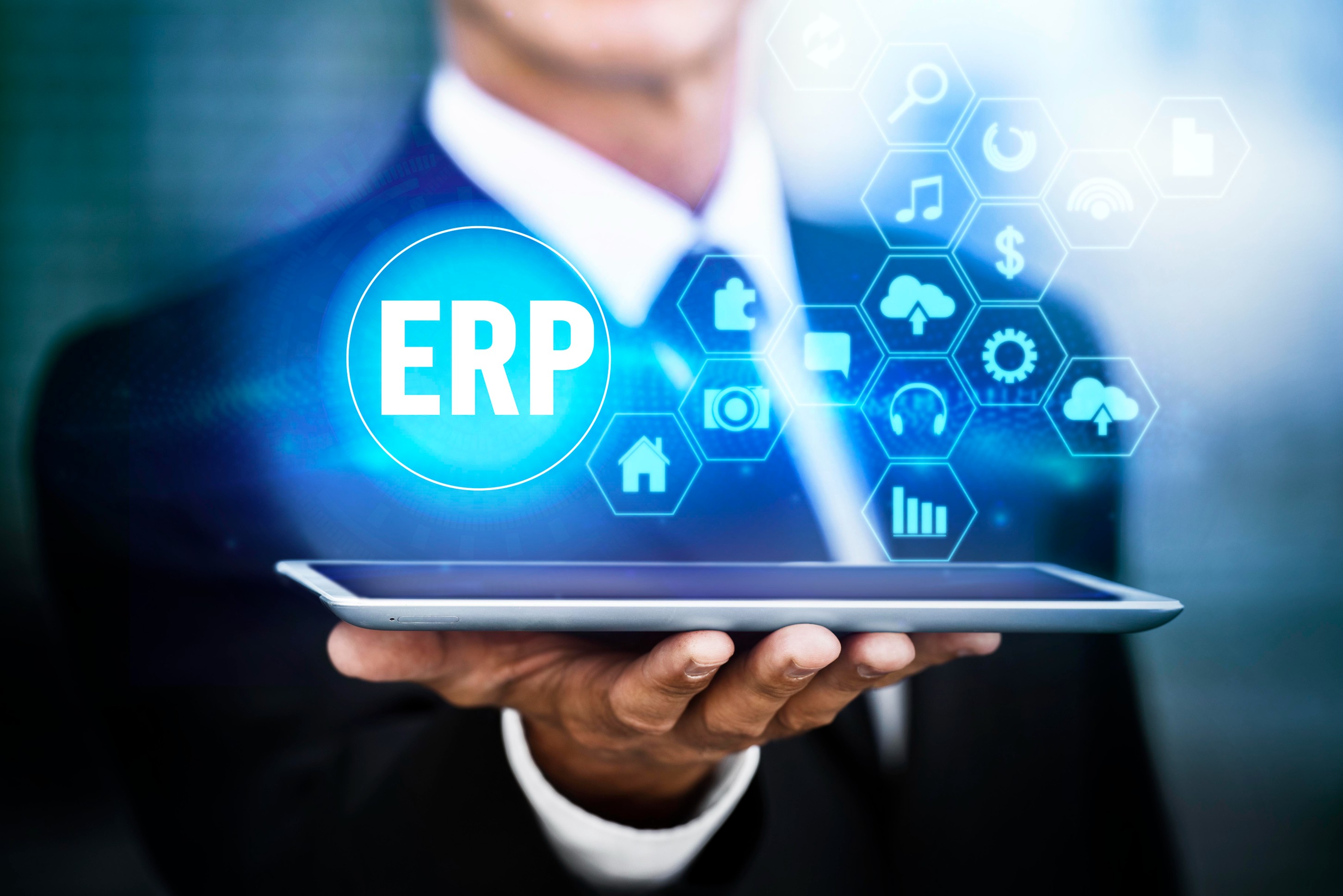How to Implement ERP for Next-Generation Businesses: A CIO’s Guide to Modernizing IT Operations

Managing a business today is more complex than ever. The rapid pace of technological advancements, global competition, and shifting customer expectations demand that businesses operate with precision, agility, and foresight. At the heart of this transformation lies Enterprise Resource Planning (ERP) software—a central force enabling businesses to streamline operations, harness data, and drive informed decisions.
In this comprehensive guide, we’ll explore ERP’s pivotal role in next-generation businesses, the evolution of ERP systems, implementation challenges, and why Virtual Delivery Centers (VDCs) are the ultimate solution for overcoming these hurdles.
ERP, or Enterprise Resource Planning software, is the backbone of modern business process management. It’s a suite of integrated applications designed to collect, store, manage, and interpret data across various business activities—ranging from procurement and accounting to project management and manufacturing.
In essence, ERP serves as a centralized hub for information, breaking down silos and fostering collaboration across departments. Whether you’re a small business scaling operations or a mid-sized enterprise navigating complex supply chains, ERP software offers the tools needed to make smarter, faster decisions.
ERP solutions aren’t one-size-fits-all. Each system is tailored to specific industries, business sizes, and operational needs. Here are some of the most popular ERP platforms today:
SAP ERP: Known for its industry-specific modules like SAP IS Retail, SAP IS Banking, and SAP IS Oil & Gas, SAP is a powerhouse for large enterprises.
Microsoft Dynamics: Offers flexibility through Dynamics GP, NAV, AX, and CRM, catering to diverse business needs.
Oracle ERP: Favored for its robust cloud offerings and scalability.
NetSuite: A leader in cloud ERP, ideal for mid-sized businesses.
Infor, Epicor, Sage, and RAMCO: Each offers unique capabilities, from manufacturing to human capital management.
Every ERP system targets a specific business size or industry, ensuring companies can find the right fit for their requirements.
ERP systems consist of various modules that address specific aspects of business operations. Common modules include:
Finance and Accounting: Automates financial reporting, budgeting, and compliance.
Inventory Management: Tracks stock levels and optimizes procurement.
Human Resources (HR): Streamlines employee management, payroll, and benefits.
Sales and Marketing: Enhances customer relationship management (CRM) and campaign tracking.
Supply Chain Management: Improves logistics, procurement, and vendor relationships.
Industry-specific ERP solutions offer additional tailored modules, such as SAP IS Utilities for energy companies or Microsoft Dynamics AX for retail. These systems provide businesses with a competitive edge by addressing their unique challenges.
Implementing an ERP system can revolutionize how a business operates. Here’s how:
Enhanced Collaboration: ERP fosters seamless communication between departments, enabling remote and on-site teams to work together effectively.
Improved Data Security: Centralized data repositories enhance monitoring and reduce risks of breaches.
Operational Efficiency: Automating workflows reduces manual intervention, freeing time for strategic tasks.
Cost Reduction: By identifying inefficiencies and automating processes, ERP lowers operational costs.
Real-Time Insights: Dashboards and analytics provide actionable data, enabling informed decisions.
Scalability: ERP systems grow with your business, accommodating new users and modules as needed.
These advantages are why ERP adoption has surged across businesses of all sizes.
ERP systems have evolved significantly, embracing modern technologies to meet future business needs. Key trends include:
Mobile ERP: Accessing ERP on mobile devices allows executives and employees to stay connected from anywhere.
Cloud ERP: Cloud-based solutions eliminate the need for in-house infrastructure, making ERP more affordable for SMBs.
Social ERP: Integration with social media platforms enhances customer engagement and marketing efforts.
Personalized ERP Solutions: Customization allows businesses to tailor systems to their specific workflows and industry requirements.
As technology advances, ERP systems will continue to incorporate AI, machine learning, and advanced analytics, further driving innovation.
Despite its benefits, implementing an ERP system isn’t without challenges:
High Costs: Traditional ERP systems often require significant upfront investment.
Complex Integration: Migrating legacy systems to ERP platforms can be time-consuming and error-prone.
Talent Gaps: Finding skilled professionals to manage ERP implementation and maintenance is challenging.
Customization Limitations: Off-the-shelf solutions may not meet all business needs, requiring costly customizations.
These challenges highlight the need for innovative approaches to ERP implementation and management.
Virtual Delivery Centers (VDCs) address these challenges head-on, offering a modern, cost-effective way to implement and manage ERP systems. Here’s how:
Cost Savings: By leveraging remote teams, VDCs reduce the need for on-site personnel, cutting costs by up to 70%.
Access to Expertise: VDCs provide pre-vetted talent skilled in ERP implementation, ensuring a smooth and efficient process.
Scalability and Flexibility: Easily scale teams up or down based on project needs, adapting to changing business requirements.
Faster Implementation: With distributed teams working around the clock, VDCs accelerate ERP deployment timelines.
Ongoing Support: Post-implementation support ensures that your ERP system continues to deliver value, with rapid issue resolution and updates.

For modern telecom enterprises, delivering exceptional QoS is no longer optional—it’s a brand differentiator and a strategic lever for growth. Static provisioning models won’t cut it in a world of hyper-dynamic data usage.